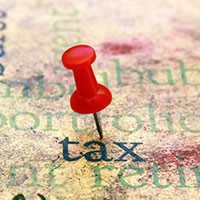Last updated: May 26 2015
Top Three Tax Tips for New Entrepreneurs

When starting a small business, whether as a proprietorship or a corporation, entrepreneurs can fall into a number of tax traps.
Here are the top three tips when setting up a new business.
Tip 1: Separate Your Business and Personal Finances
Do not mix business transactions with personal transactions. Deposit all income from the business into a separate bank account. Use a separate credit card for business purchases and don’t make personal purchases on that card. Likewise if you need a line of credit for your business, do not use the same line of credit for personal and business purposes. Business expenses are deductible and personal ones are not, so if you mix the two, figuring out what’s deductible and what’s not can become a nightmare.
Tip 2: Keep Adequate Records
It’s not always possible to avoid mixed-use expenses. If you use your car for business or set up a home office, for example, you’ll have mixed-use expenses. In those cases it is vital that you keep proper records so that the personal portion of such expenses can be separated from the business portion. If you use your car, for example, you must keep a record of all your expenses of operating the car, such as gas and oil, maintenance, insurance, licenses, etc. Then, you’ll need an auto log to determine what portion of each of these expenses is deductible as a business expense and what portion is a non-deductible personal expense. For expenses such as parking, keep a separate record of parking expenses while on business as these are 100% deductible.
Tip 3: Register for GST or HST
As a GST or HST registrant, any GST or HST you pay on your expenses is refundable. You must collect GST/HST from your clients and remit the GST/HST you collect less the GST/HST you pay on business expenses. In the start-up period, this could result in a refund of GST/HST paid if your expenses exceed your income.

